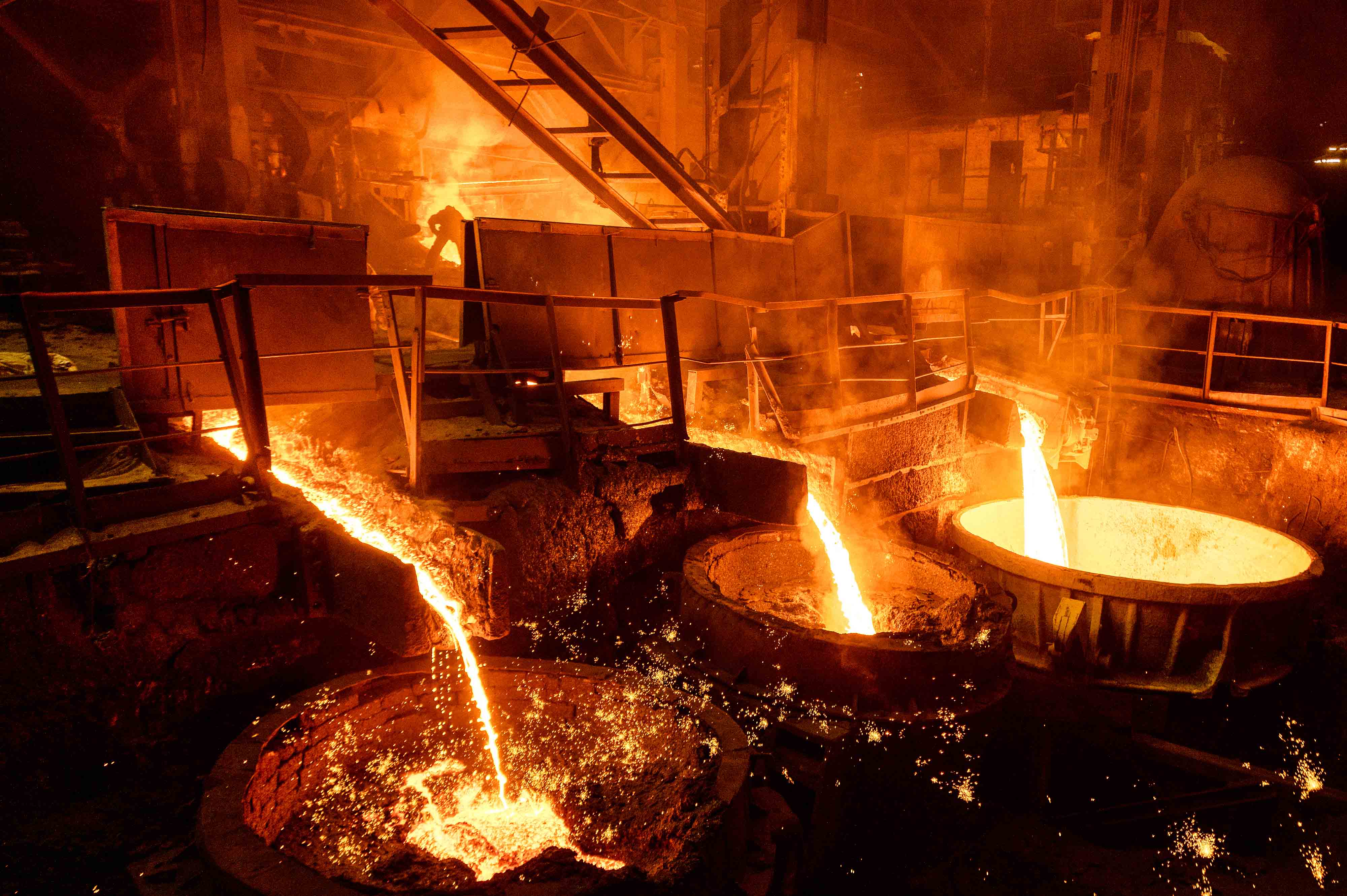Types of Sand Used in Steel Casting: Choosing the Right Material for Better Quality and Efficiency
2025-10-10 17:03:55 hits:0

In the world of metal casting, the quality of the final product starts with one simple yet critical choice — the type of sand used to form the mold.
Selecting the right sand affects everything from surface finish and dimensional accuracy to production cost and environmental impact.
At Tiegu a trusted supplier of pig iron and finished castings, we’ve seen how sand composition and preparation directly influence casting performance. Let’s explore the most common sand types used in steel casting and how to choose the best one for your foundry operations.
🔹 1. Silica Sand — The Industry Standard
Silica sand (SiO₂) remains the most widely used base material in steel and iron casting.
It is abundant, affordable, and easy to handle, making it the first choice for many foundries.
Advantages:
Excellent refractoriness for standard carbon and alloy steels
Readily available and cost-effective
Suitable for both green sand and dry sand molds
Limitations:
Tends to expand at high temperatures, which may lead to surface defects
Generates silica dust, requiring strict health and safety measures
👉 At Tiegu’s casting operations we use high-purity silica sand with controlled grain size to improve mold stability and reduce defects.
🔹 2. Bentonite (Clay-Bonded) Sand — Reliable and Reusable
Bentonite sand combines silica grains with clay binders and water, forming what’s commonly known as green sand.
This mixture offers good plasticity and strength, allowing it to retain shape during metal pouring.
Advantages:
Excellent mold strength and collapsibility
Cost-effective and easy to recycle
Good gas permeability for medium-sized castings
Limitations:
Moisture content must be tightly controlled
Less suitable for very high-temperature alloys
✅ Tiegu’s foundry-grade pig ironperforms exceptionally well with bentonite-based sand molds, ensuring smooth casting flow and reduced porosity.
🔹 3. Zircon Sand — High Performance for Precision Casting
Zircon (ZrSiO₄) sand is prized for its superior thermal stability and chemical inertness.
It’s the preferred option for casting high-alloy or stainless steels, where surface finish and dimensional accuracy are critical.
Advantages:
Extremely high refractoriness (up to 2200°C)
Low thermal expansion and excellent surface finish
Resistant to metal penetration and reaction
Limitations:
Expensive compared to silica and bentonite sands
Requires careful waste management due to radioactivity concerns in some deposits
💡 We often recommend zircon sand for customers producing precision or thin-walled castings where dimensional accuracy is paramount.
🔹 4. Chromite and Olivine Sands — For Special Applications
Chromite Sand (FeCr₂O₄): High thermal conductivity, prevents metal penetration, ideal for steel castings with complex cores.
Olivine Sand (Mg,Fe)₂SiO₄: Low thermal expansion, environmentally safer alternative to silica, suitable for manganese and stainless steel.
These specialty sands are often used in combination with silica for cost-performance balance.
🔹 5. Reclaimed and Synthetic Sands — Toward Sustainable Foundry Practice
In modern foundries, sustainability and circular economy are becoming top priorities.
Recycling and reconditioning used sand significantly reduces waste and cost while minimizing environmental impact.
Mechanical and thermal reclamation systems can recover up to 95% of used sand.
Synthetic sands (ceramic or resin-coated types) offer consistent performance and low gas emission.
🌱 As part of Tiegu’s green foundry initiative we continuously invest in sand reclamation and low-emission binder technologies to support sustainable steel production.
⚙️ How to Choose the Right Casting Sand
When selecting a sand type, consider:
Metal Type — Higher melting metals (steel, ductile iron) require higher refractoriness.
Casting Size — Fine grains for small castings, coarse for large parts.
Surface Finish — Zircon or coated sand yields the smoothest surface.
Cost and Availability — Balance performance with economic feasibility.
Environmental Goals — Reclaimable or eco-friendly sand should be prioritized.
At Tiegu our team provides customized sand and material solutions tailored to each client’s production line, from pig iron supply to casting process optimization.
🧭 Conclusion
Choosing the right sand is not just a technical decision — it’s a strategic one that impacts product quality, energy use, and long-term sustainability.
By partnering with a trusted supplier like Tiegu foundries can ensure stable raw materials, optimized casting performance, and compliance with green manufacturing standards.
From pig iron to precision castings — Tiegu supports every step of your foundry success.

 en
en  fra
fra  de
de  ru
ru  ara
ara  gle
gle  it
it  jp
jp  kor
kor  th
th  zh
zh 


